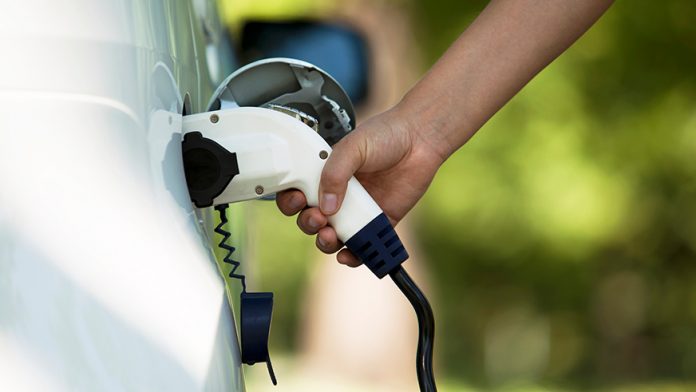Major electric vehicle manufacturers, suppliers and industry associations have jointly declared that the Victorian government’s plan to tax electric vehicles is “the world’s worst EV policy”.
The joint letter, published in newspapers on Thursday, said no other jurisdiction in the world has introduced such a separate tax on the use of electric vehicles.
“No other jurisdiction has introduced such a targeted levy on the cleanest vehicles on the road without substantial incentives to offset this,” the letter reads.
“Most developed countries prioritize incentives for electric vehicles to benefit from clean air and new jobs in a growing industry. This new tax means that the world’s manufacturers are far less likely to send Victorians their best, cheapest, zero-emission vehicles. “
The letter was co-signed by a group of 25 organizations, including vehicle manufacturers Hyundai, SEA electric, Custom Denning and Volkswagen, as well as charging infrastructure providers Tritium, Jet Charge and ChargeFox. The group was joined by a number of industry associations, including the Electric Vehicle Council and the Transport Alliance of Australia.
Behyad Jafari, CEO of the Electric Vehicle Council, said the proposal to beat electric vehicle drivers in Victoria with a tax of 2.5 cents for every kilometer driven would discourage electric vehicle purchases.
“Victoria is already massively behind comparable jurisdictions in the US, UK and across Europe when it comes to accepting electric cars. This tax will exacerbate the yawning loophole, ”said Jafari.
“Far from being on the right track to zero net emissions by 2050, emissions from traffic are increasing in Victoria. This is the wrong time to tax zero-emission vehicles. “
Solar Citizens’ national director, Ellen Roberts, who co-signed the joint letter, said the Victorian government should try to support the purchase of new electric vehicles, just as it had supported installing solar on roofs across the state.
“The Victorian government is helping households install clean solar energy. They should lead the cost and make it easier for Victorians to invest in cleaner transportation,” said Roberts.
“Just like with solar roofs, we want electric vehicles to be more affordable for everyday Australians. But this tax on cleaner vehicles will only lock the handbrake. “
The Victorian government has proposed new laws that would impose a mileage tax on electric vehicles and plug-in hybrids. The tax provides for a tax of 2.5 cents per kilometer for electric vehicles and other emission-free vehicles and a tax of 2 cents per kilometer for plug-in hybrid vehicles.
The Victorian state government argues the tax is necessary to recoup revenue that would otherwise be paid by gasoline-powered vehicle drivers through fuel tariffs. The electric vehicle tax could increase the cost of operating an electric vehicle for the average driver by around $ 330 per year.
However, EV proponents say the proposal ignores the broader public benefits of switching to EVs, including reducing air pollution and greenhouse gas emissions.
The director of the Australia Institute’s climate and energy program, Richie Merzian, described the plan as “absurd”.
“The punishment of owners of electric cars for not using gasoline, which pollutes the atmosphere and our environment, is absurd,” said Merzian.
“Our research shows that there are a number of guidelines that support the uptake of electric vehicles, which are very popular with the public. These include offering loans to buy electric vehicles, building more charging stations, and abolishing the luxury car tax for zero-emission cars. “
“It is a bit insincere to say that roads are funded by the fuel excise tax, as these funds are collected by the federal government and used for general revenue. If the state government wants to increase revenue, there are far better ways not to interfere with the use of electric vehicles. “
The letter was issued ahead of the Melbourne public hearings for an investigation into federal legislation proposed by the Australian Greens that would aim to repeal any steps to tax electric vehicles.
Under the proposed legislation, federal government grants to Australian states and territories would be reduced by an amount equal to the revenue from taxes levied on EV users, thereby nullifying any benefit to state government revenues.
Michael Mazengarb is a journalist with RenewEconomy in Sydney. Prior to joining RenewEconomy, Michael worked in the renewable energy field for more than a decade.

